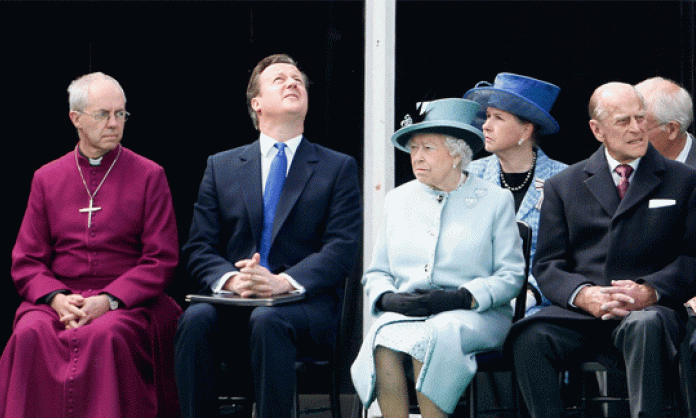You could not help but be struck by the hypocrisy of the Magna Carta 800th anniversary celebrations in the English-speaking world.
To understand why it’s hypocritical, just look at what they are supposedly celebrating.
According to the Australian Human Rights Commission (AHRC) website: “Magna Carta has had an enduring legacy that has shaped the human rights and freedoms that all Australians enjoy today. In particular, Magna Carta advanced ideas of freedom, justice and the rule of law, principles which have become enshrined in our democracy”.
Only an idiot would pretend that any of this was true in 1215.
All those present at the original signing were members of a tiny and brutal feudal ruling class. Far from setting the mass of people free, the document was about rearranging power between the king and the rest of this tiny elite (they were the “free men” to whom the Magna Carta refers).
For everyone else in 13th century England, brutal exploitation by these nobles remained the order of the day.
And so it has continued. Feudalism was replaced by a much more dynamic and brutal system of class rule, capitalism, which expanded to incorporate the whole world.
Which brings us to Australia. Even the AHRC website notes that, when the English brought “laws and ideas about individual rights and freedoms with them to Australia”, it didn’t help many people, because “most of the arrivals [were] convicts and [had] limited rights. Aboriginal and Torres Strait Islander people [weren’t] given any rights at all” – except the right to be massacred.
In the 21st century, the lofty ideals that we are supposed to be celebrating are being discarded by our rulers, or have always been available to the rich and powerful in a way that they are not to the rest of us.
Take the right “not to be imprisoned without trial” – which the government is busy junking in the name of “anti-terrorism”. Clearly it doesn’t apply to the refugees locked up indefinitely in Australian detention centres.
The whole system of remand, which imprisons people before trial if they don’t have enough money to make bail, tells you that justice is for those who can afford it.
The reality of “the rule of law” is Indigenous incarceration rates, including of children as young as 10, up to 24 times higher than for the non-Indigenous population. Every worker’s rights are restricted by a variety of anti-union laws that deprive workers of the right to strike except in strictly limited “bargaining periods”.
But whether or not any actual rights might date back to 1215 (or even exist for much of humanity today), there is something enduring in the mythology of the Magna Carta. In Winston Churchill’s words, it is “the charter of every self-respecting man at any time in any land”.
By celebrating that, our rulers celebrate the status quo as the natural end point of all historical development. The forward march of gradual progress is promoted as the way that society has developed. Imperialism means that these ideas are always seen to emanate from the ruling elites of the major powers.
In addition, the driving force of history is safely located in the lofty realm of ideas. So, the AHRC tells us: “[The] Age of Enlightenment begins and some clever thinkers come up with new ideas. These thinkers question the power of the kings and churches, and argue in favour of individuals and democracy instead”.
But rather than gradual incremental change, rebellion and rupture have changed society.
Despite the use to which it is being put on its 800th anniversary, the Magna Carta has been a rallying point at different times for those who wanted to defend their rights from the ruling elite.
The revolutionary English Civil War of the 17th century brought the supporters of parliament under the banner of the Magna Carta. The Chartists (after another “Great Charter”) in the 1830s and 1840s and the suffragists of the early 20th century who were demanding universal suffrage also took it up.
Those who have fought to change the world, to stand against exploitation and oppression, have organised the masses into action around their charters of demands. Far from their good ideas being automatically enacted, in each case they faced fierce opposition and repression from their rulers.
Those at the top always argued that the current state of affairs was the best of all possible worlds, and any attempt to change it would end in disaster.
That’s the history of the Magna Carta we are supposed to accept. I prefer the rebels.





